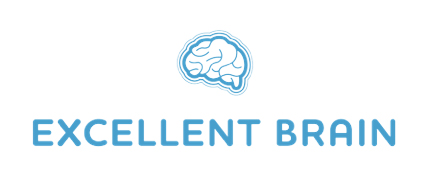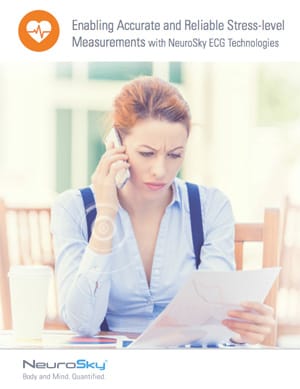App stores such as iTunes and Google Play have completely revolutionized the way people consume information. There was a time, not long ago, when just about everything in an app store had a cost associated with it, but this is no longer the case. Now, consumers can enter an app store and download millions of tools, games and more—all for free. Some of the world’s most popular free apps are stress measurement tools, and while it’s great that they are available for people interested in monitoring their stress levels, the old adage “you get what you pay for” has never been more true. For the sake of device manufacturers assessing the current marketplace and evaluating their opportunities, this post explores the differences between free mobile apps for stress measurement and devices enabled by NeuroSky’s CardioChip ECG sensor.
Why Free Doesn’t Mean Best
While free apps may have some value for casual users, the data that most of them are able to obtain is simply not as detailed or as accurate as ECG based solutions. This is because the majority of these apps use PPG (photoplethysmography) to obtain data. PPG uses light-based technology to gather a sense of the rate of the blood flow of the user as controlled by their heart’s pumping action. Depending on the free app being used, this reading may be simply taken via a camera on a smartphone—so unsurprisingly, the accuracy of its measurements will be limited.
On the other hand, an ECG sensor directly uses electrical signals that are produced by the activity of the wearer’s heart. This means meaningful data such as HRV can be derived with millisecond level accuracy.
PPG-based solutions also require relatively long settling times before they are able to obtain any useful data. This is much different from CardioChip ECG sensors, which require minimal settling time before going to work obtaining useful information for the wearer.
Why Would Someone Choose a PPG-Based Solution?
Until recently, ECG-based electrical biosensors were found almost exclusively in high-end medical equipment. That meant access to this technology was very limited. When it did arrive on the consumer market, there was a high cost associated with it, but in recent years this cost has reduced drastically. Highly accurate, low cost ECG sensors such as the CardioChip are now readily available for device manufacturers looking to enable products that help consumers track their stress levels and effect long term change in their health.
Stress Management & Health is Worth it
As mentioned earlier, free mobile apps can be useful for consumers taking their first steps into the world of stress management, but for those who are looking for meaningful data that can help them long term, there really is no comparison. In the United States alone, stress is costing the economy an average of $300 billion per year, presenting device manufacturers an opportunity to create products that make a real difference while meeting the growing demand for stress management solutions. Wearable technology that makes use of the CardioChip ECG sensor provides more data to users quickly and accurately, making it the best choice for the job.
For more information on the stress management applications of ECG sensors in wearable and mobile devices, download the free whitepaper, Enabling Accurate and Reliable Stress-level Measurements with NeuroSky ECG Technologies.



